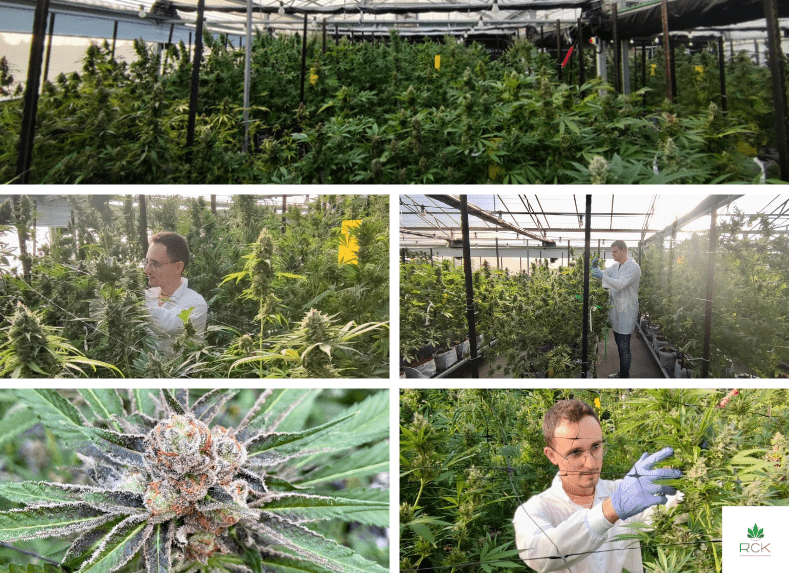In the research for important specific traits of the cannabis crop, F1 SeedTech and Genetwister Technologies joined forces to establish a Genome-Wide Association Study (GWAS). This project started in July 2022 and will run until the end of 2023 at our breeding station in collaboration with our partner RCK.
What is a Genome-Wide Association Study?
GWAS helps breeders to identify genes associated with specific traits such as THC content and pathogen resistance. This method studies the entire DNA, the genome, of a large group of plants, to search for small variants, called single nucleotide polymorphisms (SNPs) that are associated with important phenotypes.
Each GWAS considers thousands of markers at the same time. After genotyping a highly variable population, geneticists can combine the genotype data and phenotype data. These genotype markers may be associated with a plant characteristic collected during the phenotyping. For example, a marker could be associated with pathogen resistance. In this way, a GWAS will help us to breed a commercially attractive F1 hybrid with important traits and specific resistances more efficiently.
How is the Genome-Wide Association Study conducted?
To carry out a GWAS, our researchers use a large population of plants that comprise a lot of genetic and phenotypic variation. Collecting seeds all over de world, next to our own available germplasm was the first step. Those plants are grown under the same environmental growing conditions and their characteristics are recorded. During the growing, small leaves are sampled to obtain the DNA of each plant. The DNA samples are purified and prepared for genotyping using automated laboratory methods to quickly survey each plant’s genome for selected markers. For example, if a certain genetic variant is found significantly more frequent in plants without the disease compared to plants with the disease, that variant may be located in close proximity to a gene controlling resistance to the pathogen.
What is the status of our GWAS?
In July a mapping population of hundreds of plants was sowed. During the first phase, we saw some nice visual traits, like purple calyxes or mutated leaves. We also identified some plants with good resistance to Powdery Mildew, high trichomes densities, and high flower densities. In addition, the leaves have been collected at the beginning of October and DNA will soon be isolated.
Finally, the phenotyping of the plants took place at the end of November. Our F1 SeedTech team, Maikel de Bresser and Andreu Francés, evaluated the mapping population with our partner RCK. Besides, the inflorescence samples have been collected and currently are being used for cannabinoid analysis in the HPLC.
Interested in learning more about our GWAS and when the first results are expected? Follow our F1 SeedTech LinkedIn page, or contact our team via email at info@f1seedtech.com

